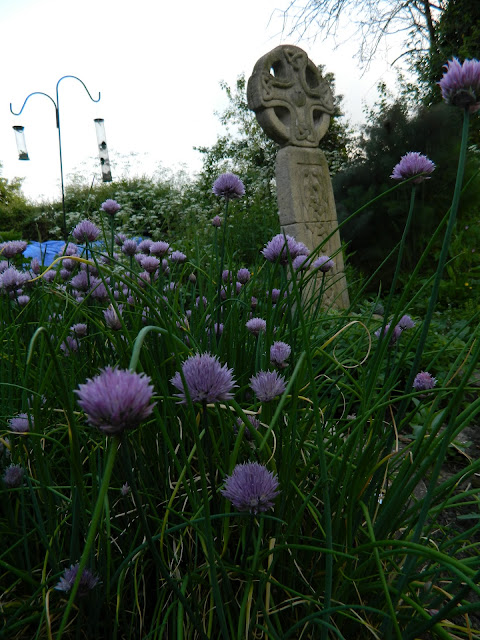
|
| |
1) Everything starts with a good idea. And good ideas can be birthed in periods of intensive prayer.
2) There is no area of our lives which God cannot invade.
Interestingly, it was a cognitive shift for me to realize that God cares about the business I run and about how I run it—-about money–because he cares about me.
3) A good business idea will meet people’s needs. Look out for what needs exist in the areas in which you might like to work. Doing well by doing good, serving while making money, is a brilliant business strategy. I learnt this lesson, memorably, while visiting Wall Drug in the Dakotas.
4 Good ideas are not born in a vacuum. They rise out of the ashes of other things you have tried, and at which you might have failed.
People rarely stumble upon perfection immediately–the right genre to write in, the right business, even the perfect arrangement of plants in a garden. (Most good gardeners will move a plant three or four times until they find the right place for it, and most beautiful gardens are the third or fourth ones the owners have planted.)
If you need to start a business, and have no better idea, start small in an area in which you are passionately interested to develop skills, experience and ideas. Sell books on Amazon. Your favourite things on Ebay. Write and sell ebooks. Grow and sell plants. Start small and work in the field you are interested in—you will soon understand the market, see gaps in the market, areas in which you can serve, and do good while doing well.
5 Beware of Greed
If a business is more or less successful, then, you will make money–more or less.
And you must ensure that you are emotionally detached from the money—that you do not obsess over the trajectory of sales, spreadsheet graphs, and bank balances.
Because money is an excellent servant– Somerset Maugham likens it to a sixth sense without which one cannot properly appreciate the other five!!– but an insatiable master. “He who loves money will never have money enough,” (Ecc 5:10)
6 The Pricking of Griefs
A business will not be devoid of hassle, no more than any other vocation on earth. In the world you will have trouble, as Jesus forewarned his disciples in his last conversation with them.
However, with a certain detachment, one can conduct it in peace, because one lives in Christ–at a very good address indeed. Definitely on the right side of the tracks!
One can train oneself to work at a steady, measured pace, without overworking at the expense of rest, relationships, and physical health
Proverbs again has something to say about this, “Do not wear yourself out to become rich. Have the wisdom to show restraint.” (Proverbs 23:4)
So while hassles are an inevitable part of work and life, overworking leads to an accumulation of hassles, to a piercing with many griefs.
It is important to set limits on how many hours you will work.
7 It’s just money.
That’s a really useful mantra.
You, being human, will make errors, which will lead to financial loss, sometimes trivial, sometimes more serious.
You will sometimes lose money because of other people’s errors.
You will sometimes lose money because of other people’s dishonesty.
And then, there is no point stewing about it. No point fretting. It’s just money.
Do not fret; it only leads to evil. Psalm 37:8
Do not fret; it only leads to evil. Psalm 37:8
If however, a work relationship causes consistent stewing, stress, and aggro, and cannot be resolved, it’s perhaps time to sever the work relationship and move on.
As far as possible, do not worry, or lose your peace about money. It’s just money, an inert substance, which is given to you by your heavenly Father, and can be given again.
One’s peace; mental, emotional and physical health; relationships and happiness–these on the other hand are precious–priceless!!-– and cannot be easily recaptured if frivolously squandered by stewing about money.
Think rationally, not emotionally when it comes to conflicts or decisions to do with money. What is the outcome you want to achieve? Work towards that, realizing that it may well not be achieved. Either way, be at peace.
I think the non-violence Jesus recommended in the Sermon on the Mount is a sensible business practice. It is better to lose small amounts of money than waste time and peace contending with an aggressive person.
9 Optimism is a lucrative mental and business habit.
While there is some truth to that old statement in the Desiderata, “Exercise caution in your business affairs, for the world is full of trickery”–and one learns the truth of this the hard way–optimism is a great business habit.
Through trial and error, I’ve realized that most people are honest. There are some dishonest people, but it’s cheaper and a better business practice to believe that people are basically good, as the founder of Ebay, Pierre Omidyaar did, (though Calvin would disagree) than muck around with registering and insuring everything.
Optimism and trust are good business strategies. Fear and suspicion on the other hand, are costly emotions–costly in terms of time, peace, mental and physical health–AND financially costly.
10 Enough
New technologies, the internet, social media are turning the traditional ways of doing business upside down.
There is a lot of money to be made.
But I don’t need to make all of it. Certainly not now.
“To the one who pleases him, God gives wisdom and knowledge and joy, but to the sinner, He gives the task of gathering and heaping, only to give to the one to pleases the Lord.” Ecclesiastes 2:26
God save us from the task of gathering and heaping, and teach us the meaning of enough.

































